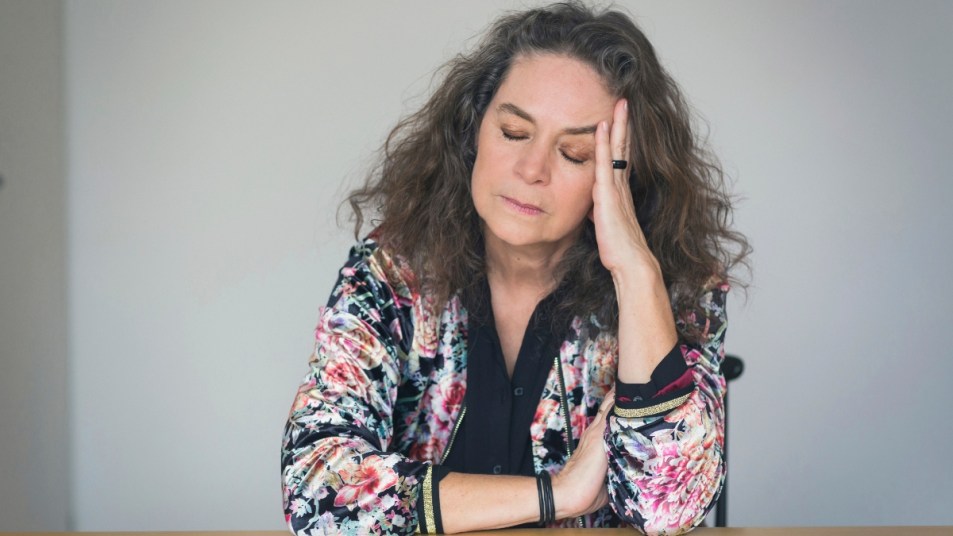Home Cures for ‘Meno-Bothers’ That May Help You Stop Reaching for Pricey Meds
The journey isn't easy, but there are things you can try to ease symptoms.

As the conversation around menopause becomes more and more open, we’re learning that it’s not an easy journey for any woman. Fortunately, research is helping us discover new ways to ease symptoms. Here, we uncover a few natural tricks to help you sidestep bothersome menopause symptoms, including brain fog, hot flashes, dry mouth, and hair loss — without reaching for pricey meds.
Note: These suggestions are not substitutions for doctor’s visits. Please talk to your doctor before changing or reducing your medications.
Brain fog?
If you can’t recall where you put your keys, pretend you’re watching Serena and Venus Williams on the tennis court for 15 seconds. Sweeping your eyes left and right, like you’d follow a tennis ball, prods the two hemispheres of the brain to communicate. This offsets menopausal brain blips (caused by stress, poor sleep and hormone swings), helping you recall information with greater accuracy.
Hot flashes?
Declining estrogen throws your internal thermostat off balance, causing your body to detect tiny increases in temperature (like if you’re snuggling under a cozy blanket) as too hot. Luckily, research in Advances in Therapy suggests sipping a mug of sage tea daily cuts moderate hot flashes by 79 percent and eliminates 100 percent of severe flushing — results as good as low-dose estrogen treatments. Sage’s estrogen-like compounds help balance hormonal shifts responsible for flushing.
Dry mouth?
With menopause, salivary gland production plummets, upping the risk of chronic dry mouth, say scientists from the University of Melbourne, Australia. What helps? Chewing strawberry, apple, or watermelon-flavored gum. A study in the International Journal of Dentistry found that doing so significantly reduces symptoms. Researchers suspect fruity flavors trick your body into producing more saliva by making your brain think you’re about to eat a sweet treat.
Hair loss?
Research published in Menopause found that dips in estrogen block the body from absorbing enough of the follicle-powering vitamin D we get from the sun, especially on fall’s overcast days. The fix: Research in the British Journal of Dermatology says a daily dose of 2,000 IU of D-3 (the “sunshine vitamin”) offsets hair loss and helps up to 91 percent of people with thinning strands regrow fuller, thicker hair.
A version of this article originally appeared in our print magazine, Woman’s World.












